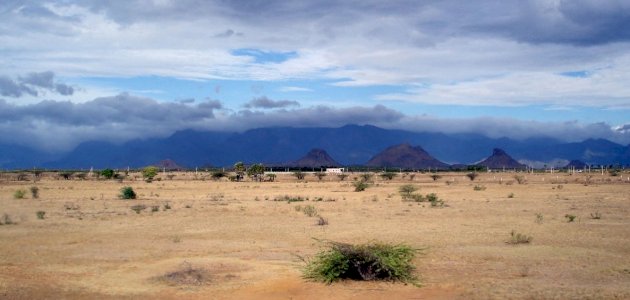- International News
- Tue-2021-11-02 | 08:39 am

Nayrouz News Agency :
Climate from 2015 to 2021
- The World Meteorological Organization announced, on Sunday, that the seven years between 2015 and 2021 are probably the warmest years recorded so far, considering that the global climate has "entered into the unknown."
United Nations Secretary-General António Guterres said in a statement that this annual report on the state of the climate "reveals that the planet is transforming before our eyes. From the depths of the oceans to the tops of mountains, melting glaciers and extreme weather events all over the Earth are affecting ecosystems and people."
Guterres considered that the COP26 climate conference, which opened on Sunday in Glasgow, should mark a "crucial turning point for humanity and the planet."
During the first nine months of 2021, the average temperature rose by about 1.09 degrees Celsius compared to pre-industrial levels.
Due to the impact of the "Nina" phenomenon, which led to a decrease in temperature at the beginning of the year, the year 2021 will not break records, but it is "likely" to rank between the fifth and seventh among the hottest years, making the last seven years the hottest recorded so far.
2016 remains the hottest year ever.
The rise in average temperatures in the last twenty years (2002-2021) for the first time exceeded the symbolic +1 degree Celsius threshold.
not exceptional
Stephen Belcher of the Met Office and co-author of the report said: "Provisional figures show that the temperature continues to tend to rise. The average temperature over twenty years has exceeded +1°C, and it will impress the minds of COP26 delegates seeking to limit warming to stipulated limits. in the Paris Agreement.
The Paris Agreement aims to reduce greenhouse gas emissions to keep warming well below 2 degrees Celsius, compared to pre-industrial levels, with a concentration of just 1.5 degrees Celsius.
But with the current trends recorded, experts from the Intergovernmental Panel on Climate Change have warned of the danger of reaching 1.5 degrees by 2030, while the current climate pledges of countries may lead to a catastrophic warming of 2.7 degrees Celsius.
A rise in temperature of one degree Celsius from now is accompanied by a series of disasters, as the International Meteorological Organization report shows.
"Extreme phenomena are no longer exceptional," said WHO chief Petteri Taalas.
In the year 2021 alone, the world knew very strong heat waves in North America and southern Europe, devastating fires in Canada, Siberia and Greece, a strong cold wave in the central United States, very heavy precipitation in China and Western Europe, and a drought that caused famine in Madagascar.
The report also stated: "Disasters continue to cause huge human and material losses, which leads to a decline in the development gains recorded in these countries," indicating at the same time a better preparedness to confront these disasters.
Adaptation to the impact of climate change is a major issue in the COP26 discussion. This adaptation has become necessary, especially with the acceleration of ocean level rise due to the melting of ice.
The rate of this rise was 4.4 millimeters per year between 2013 and 2021 with a "record” level in













